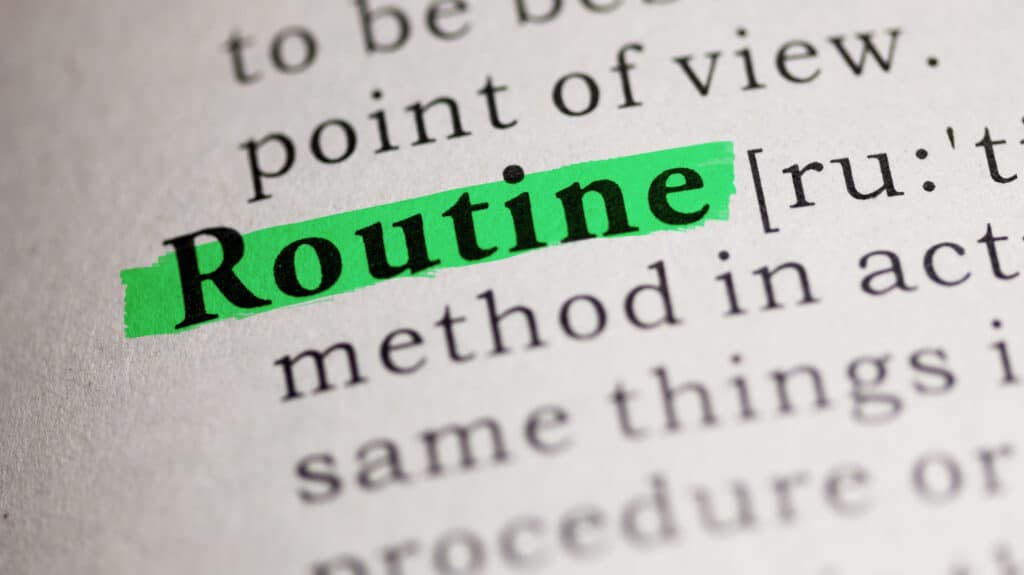During your addiction recovery program, you can talk to other patients, follow your treatment plan, use your free time productively, and create a consistent sleep schedule. These habits can help you practice a healthy daily routine after you finish rehab.
Drug and alcohol addiction can be serious mental health conditions. However, changes to your diet, sleep schedule, and hobbies can improve your mental health. Improved mental health can be linked to a reduced risk of substance use.
For people who struggle with alcohol or drug abuse, turning to substance abuse can feel easy or comfortable. On the other hand, practicing self-care and a sober lifestyle can feel difficult.
A professional treatment program can give you the tools you need to practice a new, healthy lifestyle.
Find A Sense Of Purpose
If you have an addiction, you may feel controlled by alcohol or drugs. An addiction treatment program can help you find a new sense of purpose in your life.
You may be motivated to finish rehab for your family, friends, or loved ones. You may also want to finish rehab to find a full-time job, or succeed financially. Finding a sense of purpose can help you finish rehab and stay focused in times of stress.
Your counselors and other patients can help you find your sense of purpose in rehab.
Talk To Other Patients
During your alcohol or drug rehab program, you may meet other patients recovering from a drug or alcohol addiction. While addiction can affect everyone differently, you may talk to other patients and connect over similar experiences.
You can talk to other patients during group therapy sessions or during your free time. You can also attend support group meetings, where you can share your experiences with other patients, offer advice, and form connections.
Follow Your Treatment Plan
Your addiction treatment program may include evidence-based treatment, such as medication and cognitive behavioral therapy sessions. Attending treatment every day can reduce your withdrawal symptoms and improve your mental health, which can improve your chances at long-term sobriety.
Your treatment program may also include art therapy, daily exercise and wellness programs, and nutrition advice. These sessions can release positive endorphins in your brain, offer a creative outlet for your stress, and potentially give you a new hobby.
Attending wellness programs and following your new healthy diet can also be important during your recovery journey.
Use Your Free Time Well
Many alcohol and drug addiction treatment centers have free time included in your schedule. You can use this free time to journal, meditate, write letters to loved ones, or talk to other patients.
Studies show that many patients struggle to stay away from alcohol or drugs in their free time. By using your free time productively in rehab, you can carry these habits to your everyday life, and reduce your risk of relapse.
Set Up A Healthy Sleep Schedule
Getting enough sleep can improve your brain function, mood, and well-being. Studies show that a lack of sleep can worsen your well-being, which can lead to higher chances of relapse.
Your treatment program may have required “lights out” and wake-up times. Following this schedule can help you start and maintain a healthy sleep schedule in the long term.
Be Consistent With Your Habits
Eating healthy meals, exercising daily, and trying new hobbies can improve your well-being. However, you may only feel the positive effects of a healthy lifestyle if you practice good habits every day.
If you are not consistent with your habits, you may have trouble maintaining them after you leave rehab. You may also fall back into old, unhealthy habits in times of stress.
Consistent, healthy habits may include practicing your new routine every day, even when you struggle to do it.
Northeast Addictions Treatment Center
Addiction treatment programs can treat physical and mental side effects of addiction. However, effective treatment programs can also give you the tools you need for long-term sobriety, so you can manage your addiction when you go back to your daily life.
For an effective addiction treatment program that works for your specific needs, contact Northeast Addictions Treatment Center.
Our inpatient and outpatient treatment programs can help you manage cravings and improve your mental health. We may also offer wellness and stress management sessions, where you can learn healthy habits, set up a new daily schedule, and plan for long-term sobriety.
Additional Information:
- How To Balance Work & Addiction Recovery
- Can You Date In Rehab? | Relationships In Early Recovery
- 7 Substance Abuse Group Therapy Activities
- Why Helping Others Can Lead To Long-Term Sobriety
- Can You Stay Enrolled In Your College Courses During Outpatient Rehab?
Sources:
- Indian Journal of Psychiatry – Understanding nutrition, depression, and mental illnesses
- Substance Abuse: Research and Treatment – Habits and Routines of Adults in Early Recovery From Substance Use Disorder: Clinical and Research Implications From a Mixed Methodology Exploratory Study
- Substance Abuse and Mental Health Administration (SAMHSA)- RECOVERY: THE MANY PATHS TO WELLNESS – Facing Addiction in America

